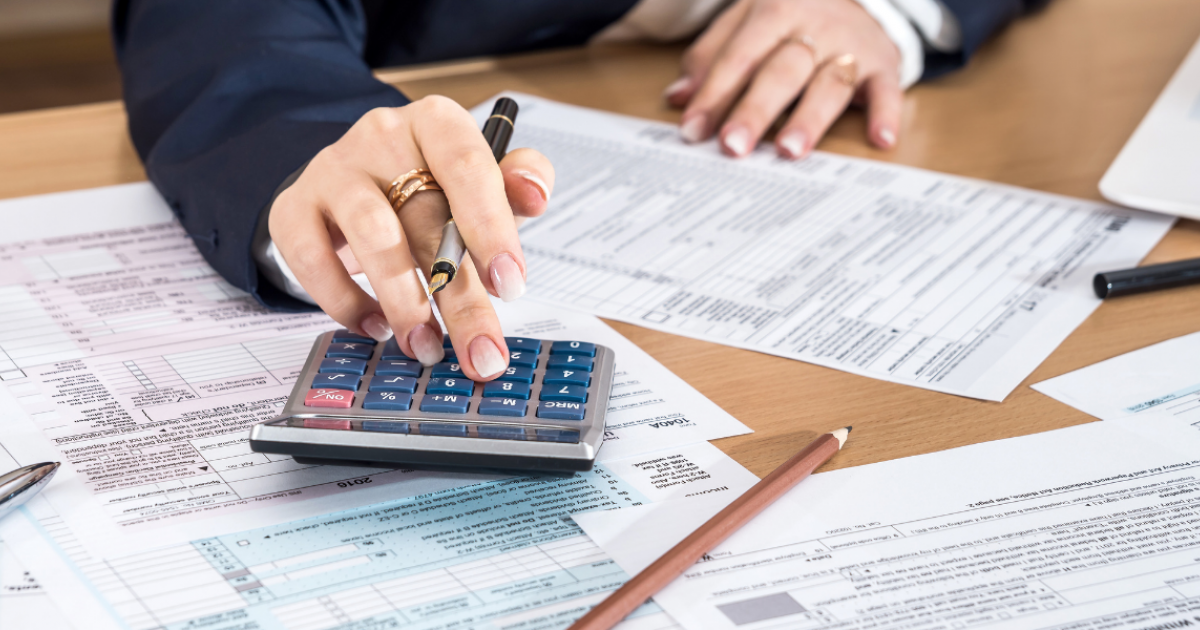When it comes to taxable profits in the UAE, the government is in charge of managing them. The value of the profits is calculated based on the profit tax rate and the total amount of profits made in a year.
In this article, we will discuss the steps set by the government in the Emirates to compute taxable profits in the UAE.
1. What is a taxable profit?

Taxable profits in the UAE are the profit upon which income taxes are payable. The composition of taxable profit varies by authority. Likewise, it will vary depending upon the rules of the taxation authorities within which an entity is located or does business.
Governments usually state that specific organizations have nonprofit status, which means that any earnings they make are not subject to income tax. However, there is a taxable profit based on business earnings and other taxable capital gains.
They are primarily generated from operating income. Nonetheless, they can come from dividend income, interest income, or the sale of long-term assets.
1.1 Can taxable profits affect small businesses?
The answer is yes, but the effects of taxable profits in the UAE on small businesses, such as a cafeteria, are not as significant as you might think. Thus, it can come in different forms, such as revenue from a sale, interest income, or rental income.
There have been many discussions about whether taxable profits affect small businesses. People may believe that this does not affect them as they do not earn enough to be taxed. Likewise, others think it does because it may cause them to lose money if they do not get enough revenue from their sales and services.
1.2 How do countries benefit from taxation?
Taxation is one of the ways countries fund their government. Besides, it is a way for governments to collect money from citizens and then use it to provide services such as education, healthcare, infrastructure, and other public goods.
The benefits of taxation are many. It helps provide public goods and services while also providing an incentive for people to work hard and invest in the country’s economy.
Taxation can be complicated for people to understand since it is not always apparent why certain countries have taxes while others do not. When you consider the benefits of taxation, it becomes easier to understand how nations benefit from this.
2. What are the types of methods to calculate taxable profits?
There are several ways to calculate taxable profits in the UAE, but most methods require a lot of effort and time. The methods that a company can use to compute taxable gain are:
2.1 Cost of goods sold (COGS) method
The COGS method is a simplified method of calculating the cost of goods sold by companies. This is the first step in calculating total revenue, gross profit, and net income. The COGS method relies on the idea that each product has a cost, and with these costs, you can calculate the total costs of goods sold.
2.2 Percentage method
The percentage method is a common way to calculate taxable profits. Likewise, a person can calculate this by dividing the net income by the gross receipts.
2.3 Specific Identifiable Cost (SIC) method
The Specific Identifiable Cost (SIC) method is a very popular analytical tool that helps companies calculate the cost of a particular project. According to the SIC method, the cost of an activity is calculated by identifying the individual actions that make up that activity and assigning a value for each particular activity. Then, the companies can calculate the total cost of these values.
3. How can taxes be applied to what you earn?
There are different types of taxable profits in the UAE that can be taxed depending on the country or state.
3.1 Individual income taxes
All individuals and households in a country need to pay income taxes on their various earnings. This is usually done through their employers, but it may also happen through a personal return filing that the individual themselves does.
Tax rates for high-income households go up over time. That is because progressive tax brackets discourage high-income households and save their money in ultra-low tax jurisdictions.
3.2 Corporate income taxes
The corporate income tax on businesses is considered as taxable profits in the UAE, and companies need to pay it. Companies can do this through federal and state governments.
Enterprises have the choice to pay the taxes when they need to pay. In addition to this, the national system provides the opportunity to withhold them from their employees’ paychecks that are sent to the government.
3.3 Payroll taxes
Employees in many countries contribute to a payroll tax. Hence, they pay taxes on their wages and salaries, which finance social insurance programs like health care, pensions, unemployment, and others.
For higher-income earners, taxpayers will notice payroll taxes as a line item at the end of each pay period. Besides, it is essential to note that not every company in the UAE withholds payroll taxes. Likewise, it is also possible for an employer to decide they do not want to include these in their employee’s pay.
3.4 Capital Gains taxes
Capital gains taxes are a type of income tax assessed on the profits made from selling an asset. These taxes are levied on individuals who sell stocks, bonds, and real estate assets. Besides, they can also relate to people who have sold an asset for a price higher than what it cost them to purchase the property.
4. How can taxes be applied to what you buy in the UAE?
The UAE has a very high tax rate on alcohol, cigarettes, and fuel products. Likewise, these taxes are put into the goods that you buy in the country.
4.1 Sales taxes
Sales taxes are imposed on the disposal of goods and services. Certain states have special sales taxes, while others may have a state-wide sales tax. When shopping for items, it is essential to be aware of each purchase’s applicable sales tax rates.
4.2 Gross Receipts taxes
Gross receipts taxes (GRTs) are set on the sale of every single item of a company’s raw materials or the sale price for each item by itself. GRTs are calculated by adding standard rates to the gross sales, regardless of profitability and without deductions for business expenses.
Many countries’ taxes are based on profits or net income. In contrast, other countries like to use sales taxes.
5. What taxes are applied on things you own?
The following are some of the taxes that can lay on items you own:
5.1 Property taxes
Property taxes are taxable profits in the UAE, applied to the property’s value levied by the government. They fund public services like schools, police, and local governments. Besides, property taxes can also be split between municipal and county governments, which differ in how much they charge for their services.
5.2 Tangible personal property (TPP) taxes
It is a tax imposed on all tangible personal property, which includes assets like cars, furniture, and jewelry. Hence, many factors determine how much you pay in taxes. For example, your age, how long you have owned the item, and whether it has been used in business or sold at an auction.
6. What is the difference between a business and an individual’s profit?
A business is an organization that works to produce and distribute goods and services. In return, they earn a profit. On the other hand, an individual’s profit is the amount of money they have made or saved by selling a product or service that they have created.
The difference between a business and an individual’s profit is that a business earns its income from the sale of goods and services. In contrast, individuals reach their income from selling their products or services.
7. How to compute the procedure for taxable profits in the UAE?
In the UAE, all profits are subject to taxation. A company can tax them according to their business activity and location. To compute the procedure for taxable earnings in the UAE, companies should calculate their gross income and deduct expenses before calculating their net income. However, if a company needs to calculate their profits, they need to follow these steps:
- Firstly, identify the cost of goods sold (COGS) and other expenses related to revenue.
- Next, identify revenue.
- Then, calculate taxable profit as the difference between COGS and revenue with fewer expenses related to revenue.
8. Who has to file taxes in the UAE?
In the UAE, everyone who earns income from work or investments must file a tax return. They have to fill out the form and submit it to their employer to do so. The employer will then send it to the government for processing. Likewise, taxables profits in the UAE apply whether a person is:
- A citizen
- A foreign resident
- Employed
- Self-employed
8.1 Who qualifies as a tax resident in the UAE?
Many factors determine whether a person is considered a UAE tax resident. The following are some of the most critical factors:
- Residence: If you live in the UAE for more than 183 days in a year, you will be considered a resident.
- Employment: If you work in the UAE for more than 183 days, you will also be a tax resident.
- Business activities: If your business activities are extensive, you are eligible to be considered a tax resident.
8.2 What is the UAE tax filing deadline?
The UAE tax filing deadline is the last day to submit your tax return to the government. With this, you get a chance to claim any tax refunds that you might be eligible for. The deadline is typically in the month of February of each year. However, it can vary depending on the type of income and how long you have been in the country.
9. What types of taxation does the UAE have?
The UAE’s tax system is progressive and different types of taxation are combined to create a unique tax structure. Here are the types of taxables profits in the UAE:
9.1 Value-added tax
Value-added tax is a tax on the value added to a product or service at each production stage. Besides, this tax prevents tax evasion by adding an extra layer of taxation at each level.
9.2 Corporate tax
Corporate tax is a mandatory charge that companies in the UAE must pay to the government. It is a percentage of its income, profits, and other revenues. Nonetheless, the government aims to raise public spending and investment revenue to sustain economic growth and reduce poverty.
9.3 Excise tax
In the United Arab Emirates (UAE), excise taxes are imposed on different products sold within the country. Besides, the UAE has a surcharge for items that are deemed harmful to human health, including:
- Tobacco
- Electronic smoking devices
- Energy drinks
- Carbonated drinks
- Sweetened drinks
10. How can Connect Middle East help you?
At Connect Middle East, we know that the taxable profits in the UAE can become complicated if you lack experience in the local market. However, we have a knowledgeable legal team that can help you through this and any business-related matter in the region.
Would you like to contact us to know more about our services? Simply call us on +971 43 316 688 or write us an email at [email protected] where one of our representatives will gladly answer all your questions! Do not hesitate any longer.



